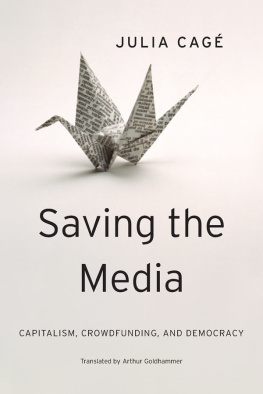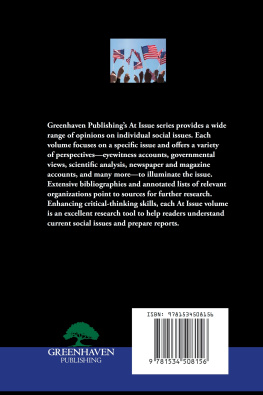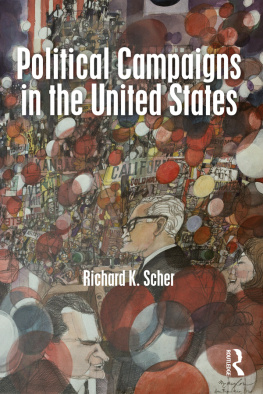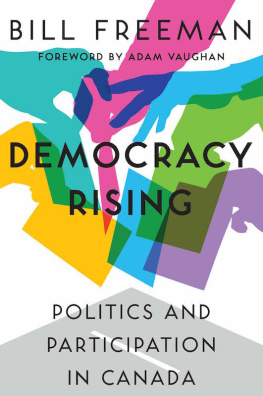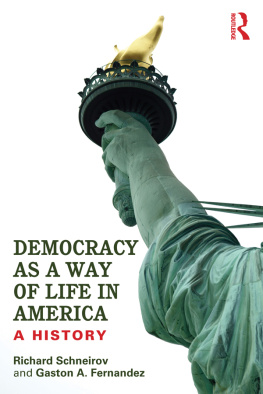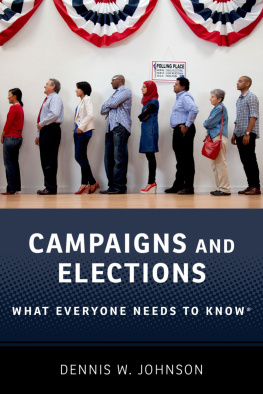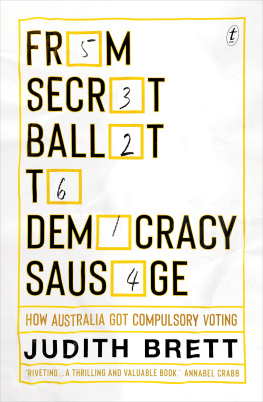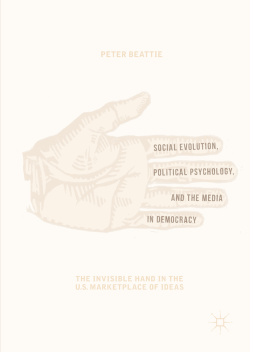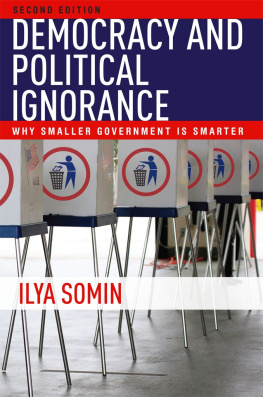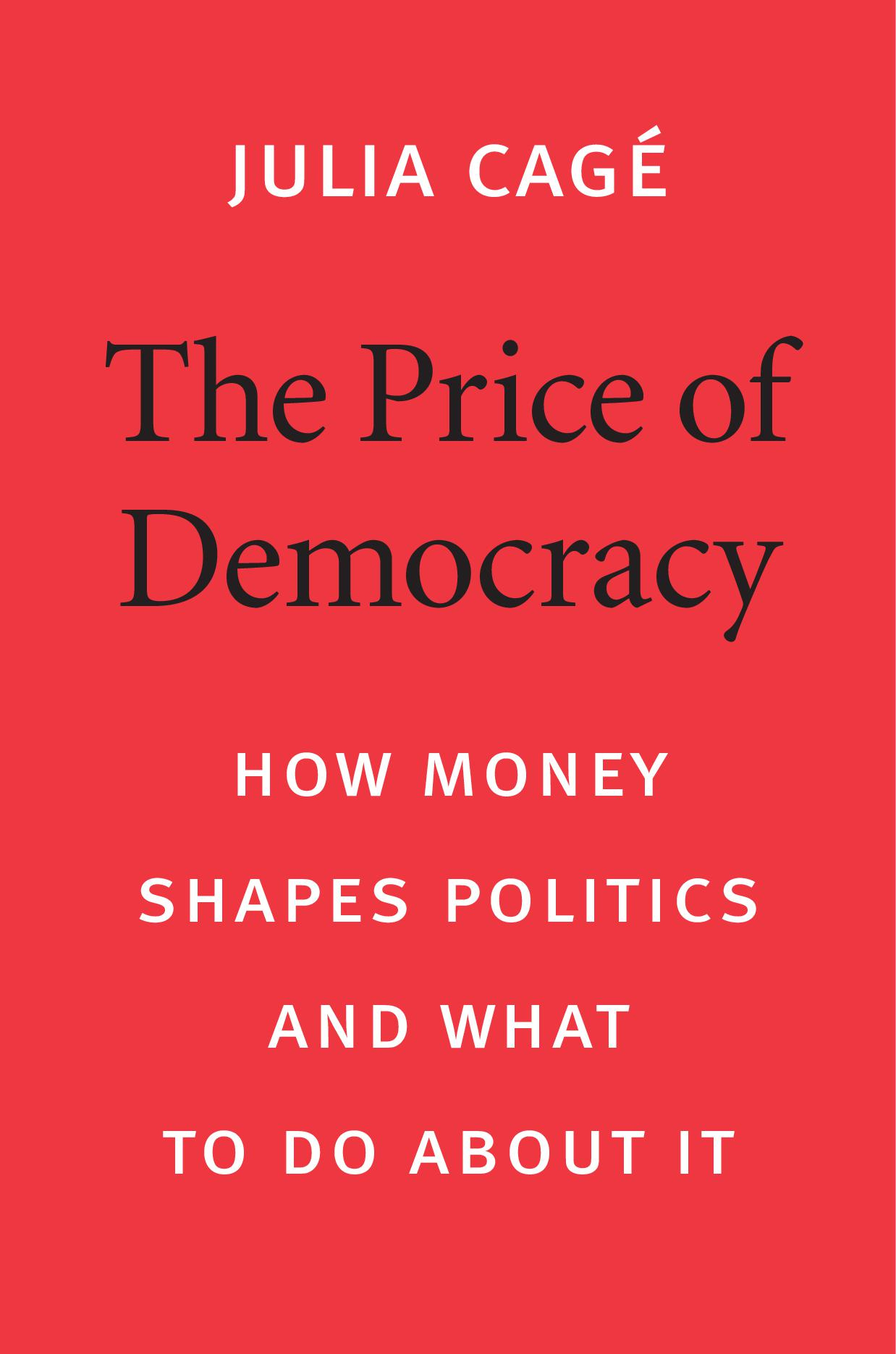ISBN: 978-0-674-98728-9 (alk. paper)
Why is it a problem that some financially contribute much more than others to the workings of democracyfor example, by buying media outlets, funding think tanks, or making donations to political parties? The idea for this book began to grow four years ago, when I was putting the finishing touches to its predecessor, Saving the Media. It then went through various stages alongside the writing of academic articles on which I have drawn here. My paper The Price of a Vote: Evidence from France, 19932014 played a particularly important role: its striking results concerning the effects of campaign spending in a country like France only strengthened my belief in the need for a comparative long-term study of different models of public and private funding of democracy. My thanks therefore go first of all to my co-author in that investigation, Yasmine Bekkouche, as well as to Thomas Ferguson and the Institute for New Economic Thinking (INET) for the confidence they showed in funding this research agenda and the major data collection work that it involved.
This book also owes a great deal to all the other researchers with whom I studied the private funding of democracyand with whom I continue to navigate the long, never-ending stream of research. At present I am working with Malka Guillot on French tax data, in order to gain a better understanding of how economic inequalities reinforce political inequalities, and above all of what motivates donations to political parties and campaign spending. Her familiarity with the FELIN (Sampled Income Tax) files has proved invaluable, and I am grateful to the Committee on Statistical Confidentiality and the Secure Data Access Center for the permission it gave to work on these files.
Together with Edgard Dewitte, I have tackled 150 years of British history in an attempt to grasp how campaign spending has affected the results scored by political parties. I would like to thank him for the faith he had in the project, especially as it was far from obvious that we should be going back to an age when candidates offered to drive voters to the booths in a horse-drawn carriage. In fact, I owe Edgard a double debt of gratitude, since he helped me throughout the writing of this book to collect archival material and to understand the nuances of legislation in different countries. Special thanks also to Elisa Mougin, a truly outstanding research assistant, ever ready to add her skills in exploring the sometimes mine-strewn terrain of the transparency of political parties; to Benedetta Ruffini for her invaluable research on Italy; to Alexandre Diene for help with my study of Germany; and to Clara Martnez-Tolenado for research in the case of Spain. The law can sometimes be hard to fathom for those unfamiliar with all its subtleties, and I should like to thank Bastien Cueff for the light he shed on a number of legal matters.
At Sciences Po Paris, where I have been an Assistant Professor in Economics since 2014, I had the good fortune to benefit from a multidisciplinary research environment, especially as co-leader of the evaluating democracy axis at the Laboratory for the Interdisciplinary Evaluation of Public Policies (LIEPP). Sciences Po students from around the worldfrom Venezuela through China and Australia to Beninare a tremendous source of inspiration, and my daily interaction with them, particularly in my classes on the future of the media, constantly fuels my reflections and research.
My research in recent years has also been enriched by my work with Nicolas Herv and Marie-Luce Viaud at the National Audiovisual Institute (INA), and by our lively discussions of the crisis of the media and democracy and the use of random selection of representatives. Marie-Luce, who taught and gave me so much, departed from our midst far too early, before she had a chance to read this book. I hope she would have liked it, even if I can do no more than imagine all the discussions to which it will not lead. Marie-Luce, we miss you terribly.
Thanks to the whole team at Wedodata, and especially Karen Bastien, Brice Terdiman, and Nicolas Boeuf, who agreed to work with me on this book and brought some rather over-academic figures to life! Thanks also for their work on the leprixdelademocratie.com website, an indispensable tool for the further continuation of debate.
My editor at Fayard, Sophie Kucoyanis, gave me a free hand and showed complete trust in me. I should like to thank her for this. Thanks also to Agathe Cag, who opened my eyes to certain weaknesses in my writing (through her attentive reading of the text) and to the need for cross-breeding among intellectuals.
Thanks, finally, to Thomas, who lived through every line of this book. Thanks for your unfailing support, your tireless patience, your precious intellectual contribution, and above all your love, which gave me the energy to see the project through to the end.
I began to write this book in 2015which feels like a century ago. In France, Emmanuel Macron had not yet become president, nor had Donald Trump in the United States. Italy was still governed by Matteo Renzi, and David Cameron had not yet come up with the brilliant idea of holding a referendum on Brexit to strengthen his position in the Tory Party.
When I delivered the manuscript to my French publisher, in May 2018, some still thought that Lula might stand as a candidate in the Brazilian presidential election, and no one could imagine the wave of yellow vests that was about to break over France. Optimists still believed that a second referendum would be held in the United Kingdom (which is not out of the question, though things are not moving in that direction), while Trump was preparing to nominate Brett Kavanaugh for the Supreme Court, burying all hope that it might become a progressive force again in the coming decades.
Time has speeded up, as it were, and the crisis of representative democracy seems to have reached a paroxysm in the last few years. Brazil is today ruled by a former army officer with an authoritarian bent, Jair Bolsonaro, who ill-treats culture as well as the environment. In France, no one raises the roof any longer when the Far Right comes first in the European elections. But the gilets jaunes crisis has dramatically highlighted the representation deficit affecting a large part of the population, as well as the need for a radical reshaping of democracy. In Spain, the far right Vox party entered Parliament in April 2019, less than two years after Alternative fr Deutschland in Germany. And in the United States, Donald Trumpstill obsessed with his wall on the Mexican borderspends his time launching extensive operations to expel migrants. The European Union is not far behind in this respect, writing new pages unworthy of its history when it closes its ports to NGO vessels packed with migrants who have narrowly escaped death.


